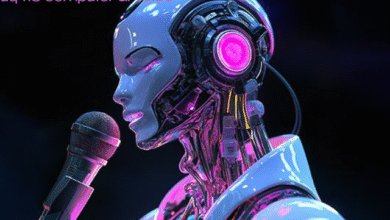iofbodies.com Ethics A Deep Dive

In this modern world, the internet is cluttered with websites that bring issues about privacy, responsibility and morality. iofbodies.com ethics is one of the websites, which aroused debates recently. Although it still has a niche digital footprint, it raises greater concerns about the creation, management, and utilization of the platforms. This controversy is not only concerning the place itself but also concerning the moral limit of online conduct and utilization of a technology.
In this article, I will be doing an in-depth overview of the morals that deal with iofbodies.com, the way it relates to digital culture, and the reason why the debate regarding online responsibilities is more essential now than ever.
Table of contents
What is iofbodies.com ethics About?
It is important to first learn the concept of iofbodies.com ethics before we plunge into ethics. Though the information concerning the platform is rather scanty, this project seems to belong to the emerging sphere of websites that cannot be exactly described as merely experimenting with digitality and can be considered as somewhat human representations. It has many similarities with the scandals related to platforms that can create AI-produced images, privacy hazards, or zone of expressions.
As the name of the publication, allego, “iofbodies” hints at an interest in bodies: physical, digital, or conceptual. This begs the following questions: Could this be a remark on commodification of bodies through the internet? One bitterly controversial tech project? Or an avenue that has ethical boundaries?
A set of Core Ethical Concerns
Privacy and Permission
Consent is one of the main postulates of online ethics. In case a site such as iofbodies.com ethics works with either the image or simulation of people, whether alive or dead, one then must ask: were these bodies represented with consent? Otherwise, it goes against ethical missteps and is similar to the questions posed around deepfake technologies and reprehensible image-sharing databases.
Commodification of the Body
Digital culture has a way of commodifying the body, in its likes on social media or artificial intelligence avatars, or more overt examples.iofbodies.com ethics finds its place here as well but compels one to consider whether the body is a respected object or one that is consumed. The morals in this case are of dignity, identity, and the consequences of perception of people as data.
Creators Responsibility
There are people behind every platform in the form of creators, developers or managers. Makers of iofbodies.com ethics are not the exception and receive the ethics of the organization as well. Were they foresighted of a danger? So have they put up any protection? Or was shock value the object? These are the questions that lie at the gist of not only the assessment of the following site but also the culture of innovation bereaved of responsibility.
The Wider Digital Discussion
The fact that iofbodies.com ethics is part and parcel of the bigger ethical discourse transpiring over the internet makes it especially pertinent. Such AI is generated imagery which has blown up and posed questions regarding authenticity exploitation, and identity theft. On the same note, user-generated content sites have engaged in issues of moderation, abuse, and damage.
In this aspect, the problem of iofbodies.com ethics is not unique. It is a section of a larger puzzle how society can handle the balance between scientific potentiality and moral liability.
Digital Ethics angles
The Advocates Opinion
It might be claimed that controversial sites such as iofbodies.com ethics are transgressive in significant regards. Most importantly, they point out inconvenient realizations on the role of society in the perception of bodies, identity, and digital ownership. Here the site can be regarded as a kind of probing response to modern culture rather than a means of exploitation.
The critics think the fact that the exorcism was done by a white man explains why he acted quickly to save the soul of the woman. Furthermore, the critics state that white men work extra fast not only when the person to be saved is white but also when they are prone to death like in this case of the woman.
The importance of Ethical Guidelines
It is not just about one web page to talk about at iofbodies.com. It is about the necessity of ethical frameworks of digital innovation. So is technology and its ability to define lives, identities and reputations as it changes.
The presence of set ethical principles means that the innovation will not be based on the loss of human dignity.
How Users Influence Online iofbodies.com ethics
The tendency is obvious to blame only the creators; however, users have a strong influence as well. Users directly contribute to the online ecosystem by making decisions about what to pursue, what to sponsor and what to block. It is important to understand how the collective online behavior has a greater strength, especially in developing a healthier digital future.
Conclusion
The current controversy over iofbodies.com ethics points to the acuteness of reappraising the role of digital makers, spaces, and audiences. In the world of evolving technology where legal regulation seems to be unable to respond as quickly, the ethical issues we face are not virtual and abstract, but real in terms of nosy questions as to privacy, consent and human dignity of represented individuals. Does the iofbodies.com ethics make us think of artistic expression, social criticism or a troubling space?
These gray areas that society is trying to operate are less about the existence of the platforms such as iofbodies.com, but whether they can operate in a morally acceptable fashion. In the absence of established principles, chances of exploitation, misrepresentation of personal images, and exploitation of vulnerable people occur almost unavoidably. This is the reason why digital responsibility, online privacy and ethical innovation need to be unified.
In the end, the discussion of iofbodies.com ethics morals serves to remind us that not even technological advancement is immune to compromising trust in the digital era without responsibility. Due to the necessity of making the technology sector transparent, honoring consent, and focusing on human dignity, creators and users alike can make sure that technological development will also make the online environment a healthier and more ethical place.
FAQS
Q1: What does iofbodies.com ethics focus on?
iofbodies.com ethics explores the moral implications of online platforms that blur the line between digital experimentation and human representation, raising issues of consent, privacy, and the commodification of bodies.
Q2: Why has iofbodies.com ethics become controversial?
The controversy stems from concerns that iofbodies.com may involve non-consensual imagery, exploitative representations, or misuse of digital identities, echoing wider debates on AI-generated content and online responsibility.
Q3: How does iofbodies.com ethics relate to digital culture?
iofbodies.com ethics is part of the broader digital ethics debate, addressing how technological innovation intersects with privacy, human dignity, and accountability, while urging society to balance progress with responsibility.




